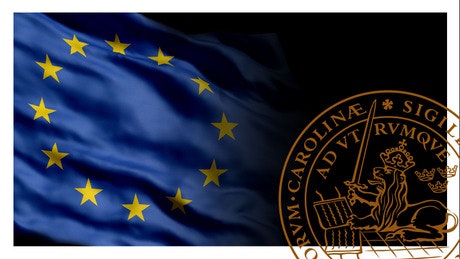International Lawyer
Becoming an International Lawyer: Navigating a Global Legal Career
An International Lawyer operates within the complex and fascinating intersection of law, global politics, economics, and culture. This field deals with the rules, norms, and standards generally accepted in relations between nations and increasingly involves interactions between private entities across borders. It's a career path demanding rigorous intellect, adaptability, and a deep understanding of diverse legal systems and international relations.
Working as an International Lawyer can be incredibly engaging. You might find yourself advising multinational corporations on cross-border transactions, representing clients before international tribunals like the International Court of Justice, or advocating for human rights with non-governmental organizations (NGOs). The sheer variety of work and the potential to engage with critical global issues attract many to this challenging yet rewarding profession.
What is an International Lawyer?
Defining the Role and Scope
An International Lawyer specializes in legal matters that transcend national borders. Their work falls broadly into two categories: public international law and private international law. Public international law governs relationships between sovereign states and international entities like the United Nations or the World Trade Organization (WTO). It covers areas such as treaty law, law of the sea, international criminal law, and international human rights law.
Private international law, often called "conflict of laws," deals with disputes between private individuals or businesses from different jurisdictions. This could involve questions like which country's law applies to an international contract, where a lawsuit involving parties from different nations should be heard, or how a judgment from one country can be enforced in another. The scope is vast, touching nearly every aspect of global interaction.
The practice involves advising clients, negotiating agreements, drafting legal documents, and representing parties in litigation or arbitration proceedings that have an international dimension. It requires not just legal knowledge but also a keen awareness of geopolitical dynamics and cultural nuances.
Distinguishing from Domestic Law
While domestic lawyers focus on the laws within a single country, international lawyers navigate the complex interplay between different national legal systems and overarching international legal frameworks. A key distinction lies in the source and enforcement of law. Domestic law is created by national legislatures and enforced by national courts and police forces.
International law, particularly public international law, derives from treaties, customary practices accepted by states, general principles of law recognized by civilized nations, and judicial decisions or scholarly writings. Enforcement is more complex, often relying on diplomacy, political pressure, sanctions, or proceedings before international courts and tribunals, which may lack the compulsory jurisdiction or enforcement power of domestic courts.
This difference means international lawyers must possess unique skills. They need to understand how different legal traditions (like common law and civil law) approach problems and how international norms interact with, and sometimes conflict with, domestic laws. Persuasion, negotiation, and understanding power dynamics are often as important as formal legal argument.
Types of Cases and Issues
International lawyers handle a diverse caseload. In public international law, this might include advising governments on treaty negotiations, representing states in border disputes before the International Court of Justice, or prosecuting individuals for war crimes or genocide at the International Criminal Court. Issues like state sovereignty, diplomatic relations, and the use of force are central.
In private international law, lawyers might work on cross-border mergers and acquisitions, international commercial arbitration involving trade disputes, intellectual property protection across multiple countries, or international family law cases like cross-border adoption or divorce. Human rights lawyers may work for NGOs, representing individuals or groups whose rights under international treaties have been violated.
The field is constantly evolving with global trends. Current issues might involve cybersecurity law across borders, international environmental agreements, legal frameworks for space exploration, or the regulation of global finance and digital currencies. This dynamic nature keeps the practice intellectually stimulating.
These foundational courses offer insights into the principles and practices governing international relations and law.
Understanding Jurisdictional Complexities (ELI5)
Imagine you buy a toy online from a company in another country, "Toyland." The toy breaks, and you want to sue. Where do you file the lawsuit? In your country or in Toyland? Which country's rules about broken toys apply? This is a question of jurisdiction (which court has power) and choice of law (which rules apply).
International lawyers figure this out. Sometimes, there's a contract (like the website's terms and conditions) that says any problems must be handled in Toyland's courts using Toyland's rules. Other times, international agreements or general rules help decide. For big issues between countries, like arguing over who owns an island, special international courts might get involved, but only if both countries agree to let that court decide.
It gets tricky because there isn't one single "world police" or "world court" that can force everyone to follow the rules like there is within one country. International lawyers need to be smart about navigating these different systems and finding the best way to solve problems for their clients, whether they are people, companies, or even entire countries.
These books delve into the theoretical and practical aspects of international law, offering comprehensive overviews.
Formal Education Pathways
Undergraduate Foundations
While there isn't one specific undergraduate major required for law school, certain fields provide a strong foundation for international law. Degrees in Political Science, International Relations, History, Economics, or Philosophy are common choices. These programs develop critical thinking, analytical reasoning, and strong writing skills – all essential for legal practice.
Coursework focusing on international affairs, comparative government, global economics, and history can provide valuable context for understanding the forces that shape international law. Studying foreign languages is also highly advantageous and often a practical necessity in this field.
Regardless of the major, maintaining a high grade point average (GPA) and achieving a strong score on the Law School Admission Test (LSAT) are crucial for admission into competitive law schools. Engaging in extracurricular activities related to international affairs, such as Model United Nations or debate clubs, can also strengthen an application.
These courses provide context on global politics and international dynamics relevant to the field.
Law School: JD and LLM Programs
In the United States, the primary law degree is the Juris Doctor (JD), typically a three-year postgraduate program. Aspiring international lawyers should seek law schools with strong international law programs, specialized journals, clinics, and study abroad opportunities. During the JD program, students take foundational courses and then specialize through electives in areas like public international law, international trade, human rights, or comparative law.
For those with a law degree from outside the U.S., or for U.S. JD holders seeking further specialization, a Master of Laws (LLM) degree is common. LLM programs focused on international law allow for deep immersion in specific subfields. Many international lawyers, particularly those working in academia or highly specialized roles in international organizations, hold LLM degrees.
After obtaining a law degree (JD or equivalent), passing the bar examination in the jurisdiction where one intends to practice is required. Some international roles might not require bar admission in a specific place, but it's generally a prerequisite for practicing law in most capacities.
This book offers a comprehensive overview of international law suitable for law students.
This course provides an introduction to public international law concepts, potentially useful before or during law school.
Doctoral Studies (PhD/SJD)
For those interested in academic careers or high-level research and policy roles within international organizations or think tanks, pursuing a doctorate in law may be beneficial. In the U.S., this is often the Doctor of Juridical Science (SJD or JSD), while in other countries, it might be a PhD in Law.
These programs are heavily research-oriented, culminating in a dissertation that makes an original contribution to legal scholarship. Admission is highly competitive, typically requiring a strong academic record, including an LLM, and a well-defined research proposal.
A doctorate is generally not required for practicing international law in firms or most government positions, but it signifies deep expertise and is the standard credential for a career in legal academia focused on international law.
Specialized Certifications and Training
Beyond formal degrees, specialized knowledge can be enhanced through certifications or focused training programs. These might cover specific areas like international arbitration, WTO law, maritime law, or European Union law. Professional organizations and universities often offer such programs.
These certifications can signal expertise to employers and clients, particularly in niche areas of practice. Continuous learning is crucial in international law due to its evolving nature, driven by new treaties, changing geopolitical landscapes, and emerging global challenges.
Engaging with professional associations like the American Society of International Law (ASIL) or the International Bar Association (IBA) provides access to continuing education, networking opportunities, and publications that keep practitioners updated on developments in the field.
This course focuses specifically on European business law, an example of specialized knowledge.
This book explores the specialized area of WTO law.
Online Learning & Skill Acquisition
Using Online Courses for Foundational Knowledge
Online courses can be a valuable tool for building foundational knowledge in international law and related fields. Platforms like OpenCourser aggregate offerings from universities worldwide, covering topics from public international law principles to specific areas like human rights or international trade.
While online courses typically cannot replace a formal law degree (JD or equivalent) required for practice, they can be excellent resources for undergraduates exploring the field, professionals considering a career pivot, or even law students seeking supplementary material. They offer flexibility and access to diverse perspectives.
Look for courses taught by reputable academics or practitioners. These can help you grasp core concepts, understand key terminology, and decide if the subject matter truly interests you before committing to the significant investment of law school.
These online courses introduce fundamental concepts in international law and related fields.
Supplementing Formal Education Digitally
For students already enrolled in law school or LLM programs, online resources can effectively supplement traditional coursework. You might find courses that delve deeper into niche topics not covered extensively in your curriculum or offer perspectives from different legal systems.
Digital resources also include access to online legal databases (like Westlaw or LexisNexis, often provided by universities), repositories of treaties and international court decisions (e.g., UN Treaty Collection, ICJ website), and online journals. Developing proficiency in using these digital research tools is a critical skill for any modern lawyer, especially in international law.
OpenCourser's Learner's Guide offers tips on structuring self-study and making the most of online learning platforms to complement your formal education effectively. Saving relevant courses to your personalized list can help organize your learning path.
This book examines the role of international organizations, a topic often explored in depth online.
Language Acquisition Online
Proficiency in foreign languages is a significant asset, and often a requirement, for international lawyers. Online platforms offer numerous language learning courses, from beginner to advanced levels, including specialized courses focusing on legal or business terminology.
Consistency is key in language learning. Online courses provide the flexibility to practice regularly. Consider focusing on languages widely used in international diplomacy and commerce, such as French, Spanish, Mandarin Chinese, Arabic, Russian, or German, depending on your specific career interests and geographic focus.
Supplement online courses with language exchange partners, immersion programs (if possible), and consuming foreign media (news, films) to build practical communication skills beyond grammatical knowledge. OpenCourser lists courses in various languages, including specialized options.
These courses offer starting points for learning languages relevant to international practice.
Developing Practical Skills Remotely
While some legal skills require in-person experience, certain practical competencies can be honed remotely. Online workshops or simulations might focus on legal drafting, negotiation strategies, or even mock arbitrations or mediations conducted via video conferencing.
Participating in online Model UN simulations or virtual competitions focused on international law (like moot court competitions adapted for remote participation) can provide valuable practice in research, argumentation, and procedure. Some organizations may offer remote pro bono opportunities involving legal research or document review.
Developing strong research and writing skills is paramount and can certainly be practiced remotely. Focus on analyzing complex legal documents, synthesizing information from diverse sources, and constructing clear, persuasive written arguments – skills applicable across all areas of law.
This course simulates UN processes, offering insights into international negotiation and procedure.
Career Progression & Entry Points
Typical Entry-Level Roles
After law school and passing the bar, entry into international law often begins in roles similar to domestic practice, but with an international dimension. Junior associate positions in large law firms with international practice groups are common entry points. These roles typically involve research, drafting memos, document review, and supporting senior lawyers on cases or transactions.
Other entry points include roles within government agencies dealing with international affairs (like the State Department or Department of Commerce in the U.S.), legal offices of international organizations (though these are highly competitive), or legal departments of multinational corporations.
Paralegal roles can also serve as a stepping stone, providing exposure to the field before or during law school. While not practicing law, experienced paralegals in international practice areas develop valuable specialized knowledge and skills.
The Importance of Clerkships
Judicial clerkships, particularly those at international courts and tribunals, are highly prestigious and can significantly boost a career in public international law. Clerkships at institutions like the International Court of Justice (ICJ), the International Criminal Court (ICC), or regional human rights courts provide unparalleled insight into international adjudication.
These positions are extremely competitive, usually requiring outstanding academic records, relevant coursework or experience, and language skills. Even domestic clerkships, especially at federal appellate courts, are highly valued by employers as they demonstrate strong research, writing, and analytical abilities.
Clerkships offer intensive mentorship and exposure to complex legal reasoning. The experience and network gained during a clerkship can open doors to academia, government service, or specialized roles in international organizations.
Pro Bono Work and NGOs
Engaging in pro bono work, especially with organizations focused on international human rights, refugee law, or development, can provide valuable experience and demonstrate commitment to the field. Many large law firms have pro bono programs with international components.
Working directly for non-governmental organizations (NGOs) operating internationally is another pathway. While often demanding and sometimes lower-paying than private practice, these roles offer direct engagement with pressing global issues and the chance to make a tangible impact. Roles can range from field work to policy advocacy and impact litigation.
Experience gained through pro bono or NGO work can be particularly valuable for those seeking careers in public international law, human rights law, or with international governmental organizations like the UN.
This course delves into the complexities of genocide, a topic relevant to international criminal and human rights law often addressed by NGOs.
This book provides insights into the work of humanitarian organizations.
Transitioning from Domestic Practice
It is possible to transition into international law after starting a career in domestic practice, although it often requires deliberate effort and potentially further education or specialization. Lawyers in fields like corporate law, litigation, intellectual property, or environmental law may find their skills transferable to cross-border matters within those same fields.
Seeking out international assignments within one's firm, pursuing an LLM in international law, becoming active in international law sections of bar associations, and developing language skills can facilitate such a transition. Networking with practitioners already in the field is also crucial.
For some, the transition might involve moving from private practice to a government role with international responsibilities or joining an international organization. Demonstrating a genuine interest and developing specific expertise relevant to international practice are key to making the shift successfully.
This course explores international business, a common area for lawyers transitioning from domestic corporate practice.
Essential Skills for International Lawyers
Multilingual Communication
While not always strictly mandatory (especially in firms primarily serving clients from English-speaking countries), proficiency in at least one foreign language significantly enhances an international lawyer's capabilities and marketability. Many international organizations and courts have official working languages (e.g., English and French at the UN and ICJ).
Effective communication goes beyond fluency; it involves understanding how legal concepts translate (or don't) across languages and legal cultures. Precision in drafting and interpreting documents in multiple languages is vital. Oral advocacy skills in relevant languages are also crucial for many roles.
Even if day-to-day work is primarily in English, language skills facilitate relationship-building with foreign clients, co-counsel, and officials, demonstrating cultural sensitivity and enabling deeper understanding.
This course focuses specifically on effective communication in legal English.
Cultural Competency
Operating effectively across borders requires strong cultural competency – the ability to understand, appreciate, and interact appropriately with people from cultures different from one's own. This impacts negotiation styles, client relationship management, and interpretation of behaviors and laws.
Understanding cultural norms around hierarchy, directness in communication, time perception, and contract interpretation can prevent misunderstandings and build trust. What constitutes a binding agreement or ethical behavior can vary subtly (or significantly) across cultures.
Developing cultural competency involves ongoing learning, active listening, humility, and avoiding ethnocentric assumptions. Experience living or working abroad, diverse teamwork, and specific training can all contribute to building this crucial skill.
These courses address cross-cultural management and communication, essential for international lawyers.
These books explore cultural perspectives and international relations.
Cross-System Negotiation
Negotiation is a core skill for most lawyers, but international practice adds layers of complexity. Parties may come from different legal traditions (e.g., common law vs. civil law) with varying approaches to contracts, dispute resolution, and the role of lawyers.
International negotiators must adapt their strategies, recognizing that tactics effective in one culture may be counterproductive in another. Building rapport, understanding underlying interests beyond stated positions, and finding creative solutions acceptable under different legal frameworks are essential.
Knowledge of international arbitration and mediation processes is also vital, as these are common methods for resolving cross-border disputes outside of national courts. Familiarity with different institutional rules (e.g., ICC, LCIA) is often required.
These books discuss international dispute settlement and arbitration theory.
Researching Foreign and International Law
International lawyers must be adept at researching unfamiliar legal systems and complex international instruments. This involves navigating foreign legal databases, understanding different legal terminologies and structures, and accessing treaties, conventions, and decisions of international bodies.
Primary sources include international treaties, decisions of international courts (like the ICJ or regional courts), and resolutions of international organizations. Secondary sources like scholarly articles, yearbooks of international law, and treatises by experts are also crucial for interpretation and understanding context.
Proficiency in using online legal research platforms that include international and foreign law materials is essential. The ability to quickly locate, analyze, and synthesize relevant legal authorities from diverse global sources is a fundamental skill.
Ethical Challenges in International Practice
Navigating Conflicting Legal Obligations
International lawyers often face situations where the laws of different nations conflict, or where domestic law appears contrary to international treaty obligations or norms. Determining which legal standard applies, or how to advise clients operating under conflicting regimes, presents significant ethical dilemmas.
Issues like data privacy (e.g., GDPR vs. U.S. law), environmental regulations, or labor standards can vary widely, creating compliance challenges for multinational businesses. Lawyers must advise clients on navigating these complexities while upholding their professional ethical duties.
Understanding principles of extraterritorial jurisdiction (when a country's laws apply outside its borders) and rules governing conflicts of law is essential for providing sound ethical advice in these situations.
This book specifically addresses the extraterritorial application of human rights treaties.
Representing Controversial Clients
Lawyers in international practice may be asked to represent governments accused of human rights abuses, corporations involved in controversial industries (e.g., arms manufacturing, extractive industries), or individuals accused of serious international crimes. This raises ethical questions about complicity and the lawyer's role.
While the principle of access to legal representation is fundamental, lawyers must consider their own ethical boundaries and the potential reputational risks involved. Professional conduct rules provide guidance, but individual conscience often plays a significant role in deciding whether to accept such representations.
Maintaining professional independence and providing competent representation, even for unpopular clients, while navigating the political and ethical sensitivities, requires careful judgment and a strong ethical compass.
This book addresses ethics specifically within international arbitration.
Whistleblowing and Confidentiality
International lawyers may encounter evidence of wrongdoing, such as corruption, sanctions violations, or human rights abuses, by their clients or other parties. Deciding whether and how to report such activities involves balancing duties of confidentiality to the client against broader ethical obligations or legal requirements.
Whistleblower protection laws vary significantly across jurisdictions, and reporting misconduct can carry personal and professional risks. International legal frameworks may sometimes impose reporting obligations, particularly concerning issues like money laundering or terrorist financing.
Navigating these situations requires a thorough understanding of applicable professional conduct rules, relevant national laws, and any overriding international legal principles. Seeking guidance from ethics counsel or bar associations may be necessary.
Bribery and Corruption Risks
Operating internationally, particularly in certain regions or sectors, exposes lawyers and their clients to risks associated with bribery and corruption. Laws like the U.S. Foreign Corrupt Practices Act (FCPA) and the UK Bribery Act have extraterritorial reach, penalizing corrupt payments made abroad.
International lawyers must advise clients on establishing robust compliance programs to prevent bribery and corruption. They must also be vigilant in their own dealings to avoid facilitating or becoming implicated in corrupt practices, which carries severe legal and ethical consequences.
Understanding international anti-corruption conventions and differing cultural attitudes towards gifts, hospitality, and facilitation payments is crucial for navigating these risks ethically and legally.
Global Demand & Industry Trends
Emerging Markets and Growth Areas
Globalization continues to drive demand for international legal services, particularly concerning trade, investment, and finance involving emerging economies. As businesses expand into new markets in Asia, Africa, and Latin America, they require legal advice on local regulations, cross-border transactions, and dispute resolution.
Growth areas often mirror global economic and political trends. Currently, this includes renewable energy projects, technology law (including data privacy and cybersecurity across borders), international arbitration, and compliance related to sanctions and international trade regulations. Geopolitical shifts constantly create new legal challenges and opportunities.
While traditional centers like New York, London, and Paris remain hubs, demand is growing in regional centers like Singapore, Hong Kong, Dubai, and São Paulo, reflecting shifts in global economic activity. According to some industry analyses, firms are increasingly focused on cross-border capabilities as a key growth driver.
These courses touch upon doing business in specific regions and navigating global markets.
Impact of Technology and Digitalization
Technology is reshaping international legal practice. Digital currencies raise complex questions about regulation, taxation, and money laundering across borders. Artificial intelligence is being used for tasks like treaty analysis, due diligence, and legal research, potentially automating some aspects of legal work while creating new demands for tech-savvy lawyers.
Cybersecurity incidents and data breaches often have international dimensions, requiring legal expertise in coordinating responses across multiple jurisdictions and navigating differing data protection laws (like the EU's GDPR). The rise of global digital platforms also creates novel challenges in areas like competition law and content regulation.
Lawyers need to understand the legal implications of these technologies and, increasingly, how to leverage technology in their own practice for efficiency and effectiveness. Familiarity with Artificial Intelligence and Blockchain concepts can be advantageous.
Climate Change and Environmental Law
International environmental law, particularly concerning climate change, is a growing field. International agreements like the Paris Agreement create obligations for states, influencing national policies and corporate behavior. This drives demand for legal expertise in climate finance, carbon markets, renewable energy regulation, and climate-related litigation.
Lawyers may advise governments on implementing international commitments, help businesses navigate environmental regulations across borders, or represent parties in disputes related to environmental damage or climate impacts. Climate change litigation against corporations and governments is also an emerging trend globally.
This specialization requires understanding both international treaty frameworks and the scientific and economic dimensions of climate change and environmental protection.
This course specifically covers international water law, a key area of environmental concern.
These books provide background on international climate change law and the related issue of fresh water management.
Automation and the Future of Practice
Like many professions, international law is facing potential disruption from automation and AI. Routine tasks like document review, basic legal research, and even drafting standard clauses may become increasingly automated. This could shift the focus for lawyers towards more complex analysis, strategic advice, negotiation, and client relationship management.
While automation may streamline certain processes, the need for human judgment, cultural understanding, ethical reasoning, and persuasive advocacy – core skills of international lawyers – is unlikely to disappear. The ability to adapt to new technologies and integrate them into practice will be crucial.
Future demand may favor lawyers who combine deep legal expertise with skills in areas like data analysis, project management, and understanding the technological landscape shaping global business and politics.
International Lawyer Career Ladder
Associate to Partner Track in Global Firms
For many entering private practice, the traditional path involves progressing from a junior associate to a mid-level associate, then senior associate, and potentially reaching partnership in a law firm. This progression typically takes 7-10 years or more, depending on the firm and individual performance.
Advancement requires not only demonstrating excellent legal skills (research, writing, analysis, advocacy) but also developing client relationships, contributing to business development, managing cases or transactions effectively, and often building expertise in a specific niche within international law.
Making partner involves significant commitment and often long hours, but offers greater autonomy, influence within the firm, and higher compensation. The structure and expectations for partnership vary between firms.
Alternative Paths: Government, NGOs, Academia, In-House
Partnership in a large firm is not the only path. Many international lawyers build successful careers in government service, working for foreign ministries, trade agencies, or justice departments on international matters. Roles within international organizations like the UN, World Bank, or regional bodies offer opportunities to shape international law and policy.
Working for NGOs focused on human rights, development, or environmental issues provides a different kind of impact. Academia offers a path for those passionate about research, teaching, and contributing to legal scholarship. Increasingly, multinational corporations hire international lawyers for in-house counsel roles to manage their global legal affairs.
Each path offers different rewards, challenges, work-life balance, and compensation structures. Exploring these options can help individuals find the career trajectory that best aligns with their interests and values.
Senior Roles and Leadership
Experienced international lawyers in senior positions, whether partners in firms, high-level government officials, general counsel in corporations, or leaders in international organizations, often take on significant management and strategic responsibilities.
These roles require strong leadership qualities, strategic vision, sophisticated negotiation skills, and the ability to manage complex international relationships and teams. Deep expertise in a particular area of international law is usually combined with a broad understanding of global affairs.
Age demographics in senior positions vary, but reaching top leadership roles typically requires decades of experience, a strong track record, and an extensive professional network. Mentorship and sponsorship often play a role in career advancement at this level.
Post-Practice Opportunities: Consulting, Arbitration, Academia
After a long career in practice, many international lawyers transition into related fields. Some become independent consultants, advising businesses or governments based on their accumulated expertise. Others build careers as international arbitrators or mediators, leveraging their experience in dispute resolution.
Returning to academia as adjunct or full-time professors allows senior practitioners to share their knowledge with the next generation. Serving on corporate boards or advising non-profit organizations are other common avenues for leveraging expertise later in one's career.
These post-practice roles often offer greater flexibility while allowing individuals to remain engaged with the field of international law and global affairs.
Geopolitical Risks & Practice Challenges
Sanctions Compliance and Trade Controls
Navigating economic sanctions, export controls, and other trade restrictions imposed by governments (like the US, EU, or UN) is a major challenge for international lawyers and their clients. These complex, frequently changing regulations carry significant penalties for non-compliance.
Lawyers must advise clients on structuring transactions, conducting due diligence on counterparties, and implementing compliance programs to avoid violating sanctions regimes. This requires staying constantly updated on geopolitical developments and the specific details of various sanctions programs.
The extraterritorial application of some sanctions laws adds further complexity, requiring businesses to understand and comply with regulations from multiple countries simultaneously.
This course explores globalization and economic forces relevant to trade controls.
Operating in Politically Sensitive or Conflict Zones
Advising clients operating in politically unstable regions or active conflict zones presents unique risks and challenges. This can involve physical security risks for personnel, navigating complex local laws and power structures, and dealing with issues related to international humanitarian law (the laws of war).
Lawyers may need to advise on issues like investment protection under international treaties, force majeure clauses in contracts, evacuation planning, or compliance with regulations specific to conflict zones. Understanding the political context and potential human rights implications is crucial.
Work in these environments demands heightened due diligence, careful risk assessment, and often specialized security arrangements and insurance.
These courses and books touch upon conflict, geopolitics, and war, providing context for practice in sensitive regions.
Data Sovereignty and Cross-Border Data Flows
Increasingly stringent data privacy laws (like GDPR) and data localization requirements (mandating that data be stored within a country's borders) create significant challenges for international businesses and the lawyers advising them. Transferring personal data across borders is subject to complex regulations.
Lawyers must advise on compliance with differing data protection regimes, draft appropriate data transfer agreements (like Standard Contractual Clauses), and navigate conflicts between privacy laws and government surveillance or access requests.
Data sovereignty concerns – the idea that data is subject to the laws of the country where it is located – impact cloud computing, digital trade, and law enforcement cooperation, creating a complex web of legal obligations.
Diplomatic Immunity and State Sovereignty Issues
Cases involving diplomatic immunity or the sovereign immunity of states present unique legal challenges. These principles, rooted in international law, generally protect diplomats and foreign governments from being sued in domestic courts, though exceptions exist.
Lawyers may encounter these issues when representing individuals seeking redress against foreign governments or diplomats, or when advising governments on their rights and obligations regarding immunity. Litigating these issues requires specialized knowledge of international law doctrines and relevant domestic legislation (like the Foreign Sovereign Immunities Act in the U.S.).
These doctrines reflect the fundamental principles of state sovereignty and the need to facilitate diplomatic relations, but can create tension when they conflict with the pursuit of justice for individuals.
This foundational book provides context on diplomacy and international relations.
Frequently Asked Questions
Is fluency in multiple languages mandatory?
While not always strictly mandatory for every role, fluency or proficiency in at least one foreign language is a significant advantage and often a practical necessity in international law. Many international organizations have official working languages (e.g., English and French). For roles involving specific regions or clients, relevant language skills (e.g., Spanish, Mandarin, Arabic) can be crucial for effective communication and cultural understanding. Even if daily work is in English, language skills enhance marketability and effectiveness.
How does compensation compare to domestic law?
Compensation varies widely depending on the sector (private firm, government, NGO, international organization), geographic location, level of experience, and area of specialization. Lawyers in large international law firms generally earn salaries comparable to their domestic counterparts in similar-sized firms, which can be substantial. Government and NGO salaries are typically lower than private practice. Roles in major international organizations (like the UN or World Bank) often offer competitive salaries and benefits, sometimes tax-exempt, but are highly competitive.
Can one transition from corporate law to international practice?
Yes, transitioning is possible, especially if your corporate practice already involves cross-border elements (e.g., international M&A, finance, or IP). Building specific international expertise through targeted coursework (like an LLM), gaining relevant experience (perhaps through pro bono or specific assignments), developing language skills, and networking within the international law community are key steps. The transition might be smoother into private international law fields (like international business transactions or arbitration) than into public international law, which often requires more specialized knowledge from the outset.
What regions offer the best job growth?
Job growth often follows global economic trends and geopolitical developments. Historically, major financial centers like New York, London, Paris, and Geneva have been hubs. However, significant growth is occurring in Asia (e.g., Singapore, Hong Kong), the Middle East (e.g., Dubai), and parts of Latin America, driven by increasing cross-border trade and investment. Specific practice areas also influence geography; for example, international arbitration hubs include Paris, London, Singapore, and Geneva, while major international organizations are headquartered in cities like New York, Geneva, The Hague, and Washington D.C.
How critical are internships at international organizations?
Internships at international organizations (like the UN, World Bank, regional development banks, or international courts) are highly valued, particularly for those seeking careers in public international law or with these specific institutions. They provide invaluable experience, insight into the workings of these bodies, and networking opportunities. These internships are extremely competitive, so strong academics, relevant experience (including other internships or volunteer work), and language skills are usually required. While not the only path, such internships significantly strengthen a candidate's profile for certain career goals.
Do military conflicts increase demand for these lawyers?
Military conflicts often increase demand for specific types of international lawyers. This includes experts in international humanitarian law (laws of war), international criminal law (for accountability regarding war crimes), refugee law, and human rights law. Lawyers may be involved in advising governments or military forces, working for NGOs providing humanitarian assistance or documenting abuses, or participating in international tribunals. Conflicts also generate complex legal issues related to sanctions, state responsibility, and post-conflict reconstruction, further driving demand for specialized legal expertise.
Embarking on Your Journey
Pursuing a career as an International Lawyer is a demanding yet potentially deeply rewarding path. It requires significant educational commitment, continuous learning, adaptability, and a genuine passion for global affairs. The challenges are substantial, involving complex legal systems, cultural differences, and high ethical stakes.
If you are considering this path, especially if pivoting from another career, know that the journey requires persistence. Set realistic goals, leverage resources like online courses found via OpenCourser's Legal Studies section to build foundational knowledge, seek out relevant experiences, and build your network. Even if the final destination differs slightly from your initial plan, the skills and knowledge gained along the way – critical thinking, cross-cultural communication, complex problem-solving – are valuable in countless professional contexts.
The world needs skilled, ethical individuals capable of navigating the intricate legal landscape that connects nations and peoples. Whether you aim to facilitate global commerce, advocate for human rights, or contribute to international peace and security, a career in international law offers a unique opportunity to engage with the defining issues of our time.
Helpful Resources
Here are some organizations and resources that can be valuable for aspiring and practicing international lawyers:
- American Society of International Law (ASIL): Offers resources, publications, events, and career advice.
- International Bar Association (IBA): A global organization for legal practitioners, bar associations, and law societies.
- UN Careers: Portal for employment opportunities within the United Nations system.
- International Court of Justice (ICJ): Principal judicial organ of the UN.
- International Criminal Court (ICC): Investigates and tries individuals charged with the gravest crimes of concern to the international community.
- UN Audiovisual Library of International Law: Provides lectures, historical archives, and research resources.
- OpenCourser International Studies: Browse courses related to international relations, politics, and law.




















